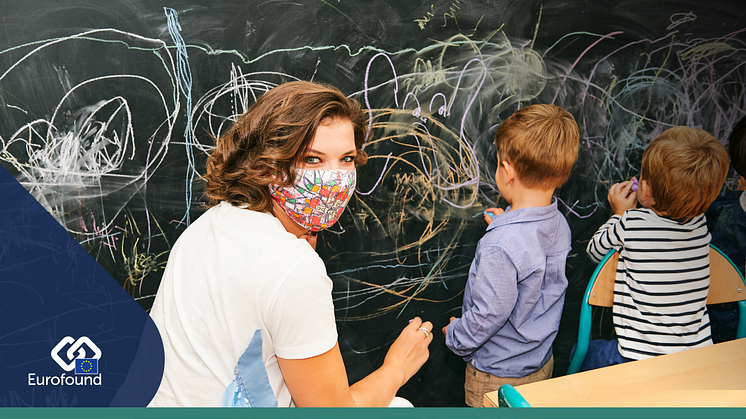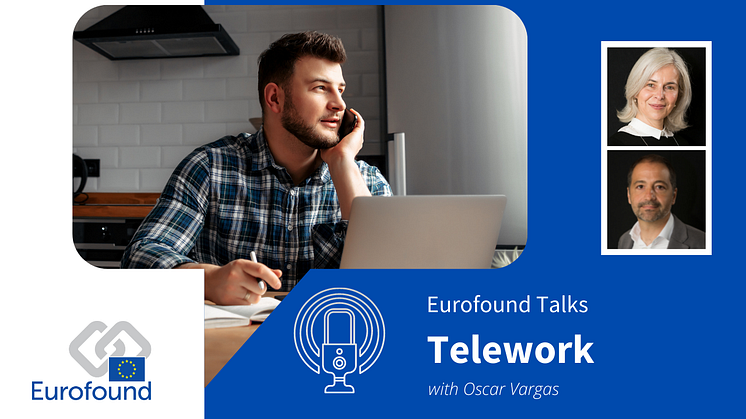
News -
New survey reveals vastly different working experiences during COVID-19: teleworkers comparatively positive while frontline workers felt unrecognised, underappreciated
Working experiences varied dramatically during the pandemic with those working from home during the COVID-19 pandemic faring better than other groups over a range of employment and working conditions indicators, even though many worked comparatively long hours and often with high levels of work intensity. By contrast, despite the pandemic revealing the vital importance of frontline workers to Europe’s economy and social cohesion, frontline workers were more likely to express that they did not receive the recognition they deserved for their work.
These are among the findings of Eurofound’s new Working conditions in the time of COVID-19: Implications for the future report. The report is the first to present the results of the European Working Conditions Telephone Survey (EWCTS), carried out between March and November 2021. Over 70,000 people were interviewed in 36 countries for the survey, providing a detailed picture of the working lives of Europeans at an exceptional time.
The COVID-19 pandemic was a challenging time for people throughout Europe, with workers experiencing drastically different circumstances: some endured physical isolation and a loss of social contact, while others persevered under new restrictions and often with much greater work intensity and emotional demand. Overall, the survey indicates 49% of respondents frequently worked at high speed and 48% to tight deadlines. In addition, 19% of workers reported that their job frequently involved being in emotionally disturbing situations.
The survey points to a range of long-standing challenges that persist for the EU’s workforce and require policy attention. These include the lack of decent and predictable earnings from work for vulnerable groups, widespread health problems, long working hours and work–life conflicts, as well as the reality that around 30% of EU workers are in strained, poor-quality jobs, where the negative aspects of work outweigh the positive. Progress on these issues will be critical to developing more inclusive labour markets and addressing the EU’s demographic transition.
The survey also confirms persistent gender segregation in sectors, occupations and workplaces, which indicates that we are a long way from the goals of equal opportunities for women and men at work and equal access to key decision-making positions in the workplace. In 2021, only one in five workers worked in a gender-balanced workplace, while just one-third of workers had a female boss. This calls for a redoubling of efforts to dismantle stereotypes that limit men and women’s choices in work.
The survey shows that already prior to the intensification of inflation and a cost-of-living crisis that worsened in 2022, a high number of people in work were in vulnerable situations, with 26% reporting difficulties in making ends meet and 17% unable to predict their earnings in the coming three months. This highlights the importance of focusing policy efforts on making work pay and targeting specific groups such as single parents and workers in low-paid jobs, who are under greater financial pressure and were more severely affected by the pandemic restrictions than other groups.
Speaking on the publishing of the report, Eurofound Executive Director Ivailo Kalfin emphasised the importance of this research for policymakers, ‘The EWCTS is a high-quality probability-based survey that documents the working conditions of Europeans in 2021. It not only presents a snapshot in time at what was a challenging moment for Europe, but also highlights important long-standing working conditions and labour market issues that need to be addressed. It is in this regard a vital resource for Europe’s recovery in the period ahead.’
Download the report:
More information:







